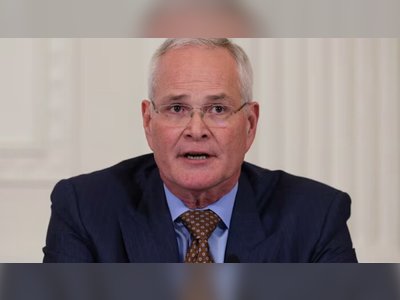San Salvador Times
The Pulse of El Salvador’s Transformation
Wednesday, Feb 04, 2026
San Salvador Times
Epoch of Swift: Transforming Concert History with the Eras Tour
The unparalleled success of Taylor Swift's Eras Tour prompts questions about the future of the music industry.
Taylor Swift has surpassed expectations by making her Eras Tour the highest-grossing concert tour in history, generating over $2 billion from 149 shows.
This is not just a milestone for music but a cultural phenomenon.
The figures behind her success reveal a significant global impact, with more than ten million fans attending across five continents and fifty cities.
At its heart, the Eras Tour goes beyond entertainment, reflecting a universal experience that blends nostalgia, artistry, and community for audiences.
Swift's ability to perform forty-six songs over an expansive three and a half hours each night demonstrates exceptional dedication and endurance, solidifying the event as a defining moment for this generation.
Swift's accomplishment sparks an important discussion about the current direction of the music industry.
Her unparalleled success raises questions about whether we are entering an era dominated by the most prominent stars.
However, attributing her success solely to celebrity status ignores the deeper connections she fosters with her audience.
Swift cultivates a bond that resonates beyond traditional fan appreciation—a strategic mix of sincerity and engagement—resulting in both financial and cultural rewards.
The Eras Tour represents more than a triumph in live performances; it is a cultural and economic force, extending Swift's influence through channels like a Disney Plus documentary and an upcoming bestselling book.
This multifaceted strategy sets a new standard for how artists leverage their influence beyond the stage.
Yet, Swift's record-breaking venture raises broader questions about whether the music scene is increasingly exclusive to a select few or simply evolving with modern pop culture trends.
Regardless of underlying concerns, Swift's success exemplifies what is possible when talent, strategic vision, and fan loyalty come together.
The debate now shifts to who, if anyone, can replicate or follow in Swift's footsteps.
Is this the peak of musical achievement or the beginning of a new chapter in the industry?
This is not just a milestone for music but a cultural phenomenon.
The figures behind her success reveal a significant global impact, with more than ten million fans attending across five continents and fifty cities.
At its heart, the Eras Tour goes beyond entertainment, reflecting a universal experience that blends nostalgia, artistry, and community for audiences.
Swift's ability to perform forty-six songs over an expansive three and a half hours each night demonstrates exceptional dedication and endurance, solidifying the event as a defining moment for this generation.
Swift's accomplishment sparks an important discussion about the current direction of the music industry.
Her unparalleled success raises questions about whether we are entering an era dominated by the most prominent stars.
However, attributing her success solely to celebrity status ignores the deeper connections she fosters with her audience.
Swift cultivates a bond that resonates beyond traditional fan appreciation—a strategic mix of sincerity and engagement—resulting in both financial and cultural rewards.
The Eras Tour represents more than a triumph in live performances; it is a cultural and economic force, extending Swift's influence through channels like a Disney Plus documentary and an upcoming bestselling book.
This multifaceted strategy sets a new standard for how artists leverage their influence beyond the stage.
Yet, Swift's record-breaking venture raises broader questions about whether the music scene is increasingly exclusive to a select few or simply evolving with modern pop culture trends.
Regardless of underlying concerns, Swift's success exemplifies what is possible when talent, strategic vision, and fan loyalty come together.
The debate now shifts to who, if anyone, can replicate or follow in Swift's footsteps.
Is this the peak of musical achievement or the beginning of a new chapter in the industry?











